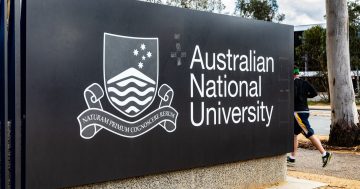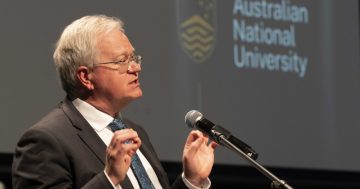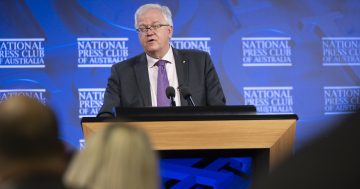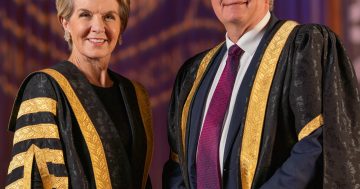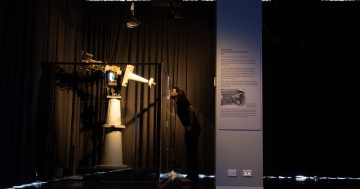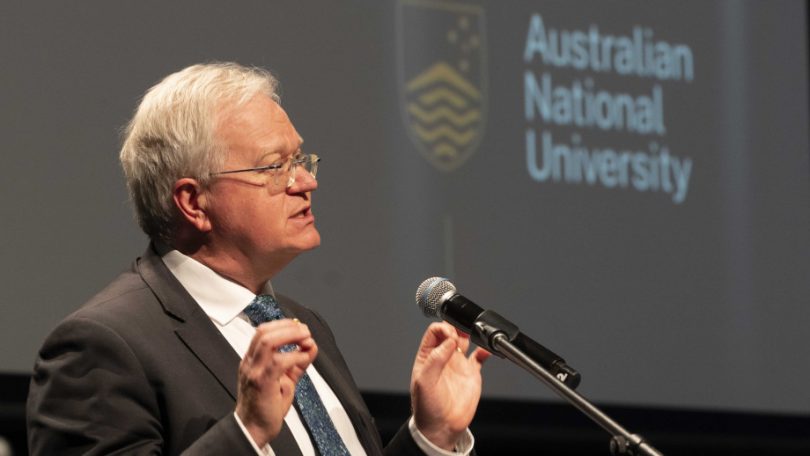
ANU Vice-Chancellor Brian Schmidt: “We are going to need to live with COVID for the time being.” Photo: File.
The Australian National University is planning for a return to on-campus classes next month but is also putting in place contingency measures and fresh COVID-19 guidance for students and staff.
ANU Vice-Chancellor Professor Brian Schmidt says in his latest blog that the Omicron-wave is likely to be “fast and furious and might well be on the wane come February”, but COVID is not going to go away anytime soon.
The ANU is finalising the details for a return to campus next month with the focus firmly on restoring classroom teaching, but virtual options will be available when needed, including when students and teachers find themselves needing to isolate.
Professor Schmidt says some ANU services will also be available in hybrid mode.
“I view this [classroom teaching] as an essential part of the ANU experience, and I know our students feel the same. We will need to do this carefully to ensure we are doing our part to inhibit the spread of Omicron,” he says.
Like other ACT workforces, ANU staff have been asked to work at home during January. Over the next couple of weeks, the university will share some updated COVID guidelines and more information on how work and teaching will look and testing and ventilation.
Students can also expect updates on how the semester will look via the usual channels.
“We are going to need to live with COVID for the time being,” Professor Schmidt says. “This means taking sensible precautions such as using high-quality masks inside, getting boosted as soon as eligible, and isolating and testing if you suspect you might have COVID. The university is going to do its best to support everyone to do these things.”
The ANU’s Public Health Lead Professor Tracy Smart has put together a guide to coping with Omicron.
The ANU and the University of Canberra have just welcomed back the first of its international students, but the exact numbers expected to return are still in flux.
“The past two years have been challenging for our students both overseas and at home, so I’m energised by the thought of having them back together – COVID safely – in a few weeks’ time,” Professor Schmidt says.
The return of the international students is a welcome economic boost for the territory.
International students contribute $1 billion each year to Canberra, with each student thought to add $50,000 to the ACT economy through tuition fees and other living expenses.
A UC spokesperson said its students would be advised of plans for semester one later this week.
Both universities have suffered serious disruption to their international student programs, particularly the ANU which has had to embark on a cost-cutting program to compensate for revenue losses.













